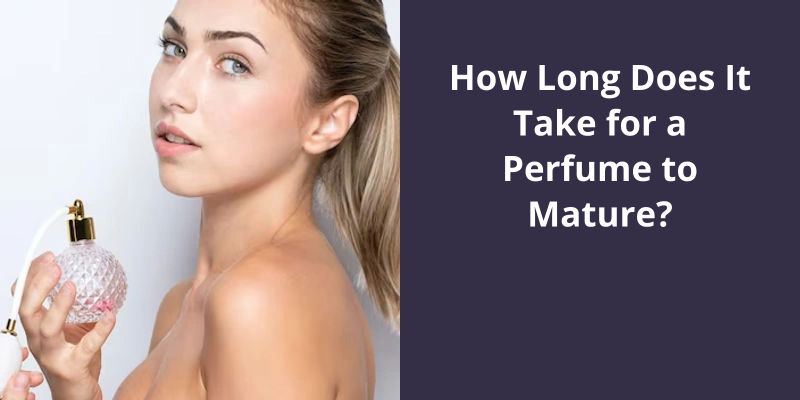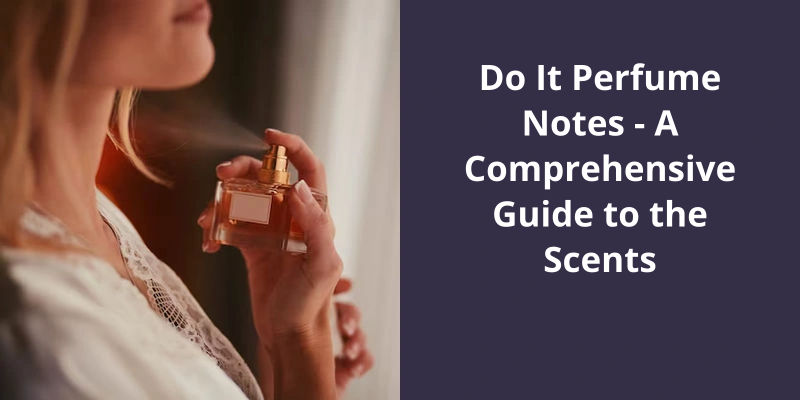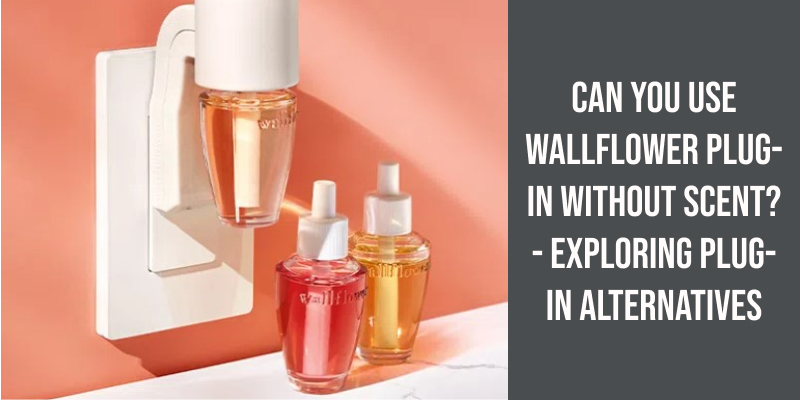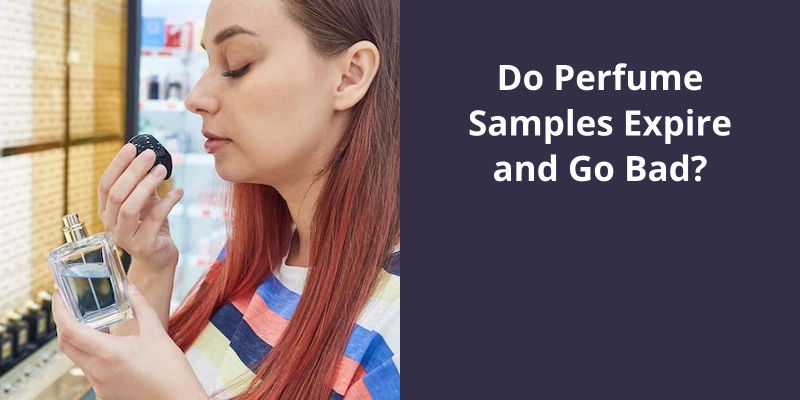The maturation process of a perfume can take anywhere from a few weeks to even several months, depending on its ingredients and the conditions under which it is stored. This period allows the different elements present in the perfume to blend and interact for a deeper, richer aroma. Some ingredients may need more time than others to mature and express their full aromatic potential. During this time, the fragrance is often kept in a cool, dark and dry place to preserve its quality and prevent any alterations. However, most perfumes are ready to use as soon as they are purchased, with the maturation process already completed at the manufacturing stage.

How Long Does a Perfume Need to Macerate?
How long does a perfume need to macerate? Just like wine, perfumes that endure the maceration process need to age in large containers to fulfil their full potential. This is especially true if a perfume uses quite a few natural ingredients or rich base notes. During this time, the molecules of the ingredients slowly meld together, creating a harmonious blend that showcases the perfumes true character. The maceration time allows for the development of the fragrances complexity and depth, allowing it’s individual notes to fully bloom.
Higher quality ingredients often have more volatile components, meaning they evaporate more quickly. By allowing these ingredients to macerate for a longer period, the fragrance is given the opportunity to become more stable and longer-lasting.
Conversely, others may find that their perfumes reach their full potential in a shorter span of time. Ultimately, the duration of maceration is a decision made by the perfumer based on their expertise and judgment.
Factors That Influence the Maceration Time of Perfumes
The maceration time of perfumes can vary depending on several factors. One important factor is the concentration of fragrance oils in the perfume formulation. Perfumes with a higher concentration of fragrance oils tend to require a longer maceration time to allow the different scent notes to properly blend and develop.
Another factor that influences maceration time is the type of ingredients used in the perfume. Some ingredients may require more time to fully integrate and harmonize with each other. Natural ingredients, in particular, often need a longer maceration time to fully reveal their true scent and potential.
The environmental conditions in which the perfume is stored can also affect it’s maceration time. Perfumes stored in a cool, dark place tend to mature more slowly compared to those exposed to heat, light, or fluctuations in temperature.
Additionally, the personal preferences of the perfumer or brand can play a role in determining the desired maceration time. Some perfumers may prefer a shorter maceration period to achieve a fresher scent, while others may opt for a longer maceration time to obtain a more complex and well-rounded fragrance.
In summary, the maceration time of perfumes is influenced by factors such as fragrance concentration, ingredient type, storage conditions, and personal preferences. These factors collectively contribute to the unique maturation process of each perfume formulation.
As time goes on, it’s natural to wonder if certain products improve with age. Perfume, in particular, has been a subject of curiosity: does it get better as it matures? While each fragrance has it’s own unique lifespan, ranging from less than a year to a decade, the average shelf life tends to be around three to five years. Surprisingly, experts suggest that perfumes with heavier base notes have the potential to age like a fine wine, gaining complexity and depth over time. Let’s explore this notion further and uncover the fascinating world of aged perfumes.
Does Perfume Get Better With Age?
One of the most intriguing aspects of perfume is it’s ability to evolve and mature over time. But how long does it actually take for a perfume to reach it’s full potential?
The aging process of a perfume is comparable to the maturation of a fine wine. This aging process is often attributed to the oxidation of certain scent molecules, which can create new aromatic compounds and enhance the overall olfactory experience.
It’s important to note that not all perfumes will age gracefully. Some fragrances, especially those with predominantly fresh or citrusy notes, may begin to fade and lose their vibrancy after just a few months. These types of scents are more delicate and prone to degradation, making them less suitable for long-term storage.
In contrast, perfumes with more robust and complex compositions, such as oriental or woody fragrances, are more likely to benefit from aging. The interplay between the various notes in these perfumes can evolve over time, allowing for a richer and more nuanced scent experience. As a result, many perfume enthusiasts enjoy collecting and aging these types of fragrances, considering them to be true works of art that only get better with time.
While the shelf life of a perfume can vary greatly depending on it’s composition and storage conditions, the average fragrance will last for three to five years. Perfumes with heavier base notes tend to last the longest and are often compared to fine wines, as they can improve with age.
Different Methods of Perfume Aging, Such as Decanting or Letting the Perfume Breathe, and Their Impact on the Fragrance.
- Decanting: Transferring perfume from it’s original bottle to a smaller container.
- Letting the perfume breathe: Allowing the fragrance to aerate by leaving it uncapped for a period of time.
- Impact on fragrance: Aging methods can affect the scent of perfume, either enhancing or altering it’s notes.
Additionally, the fragrance of the perfume may deteriorate over time, losing it’s original potency and complexity. It’s crucial to understand the signs of expiration and take proper measures to prolong the life of your perfume. Let’s delve deeper into the effects of keeping perfume for too long and how to ensure it’s longevity.
What Happens if You Keep Perfume for Too Long?
Perfumes are delicate concoctions of various aromatic ingredients, and like any other beauty product, they’ve a shelf life. If you keep a perfume for too long without proper storage, it can significantly impact it’s quality and longevity. The way a perfume is stored plays a crucial role in ensuring it’s preservation and maturity.
Exposing perfumes to sunlight, excessive heat, or fluctuating temperatures can accelerate the breakdown of it’s aromatic compounds. This can alter the scent profile and overall quality of the perfume. It’s best to store perfumes in a cool, dark place, such as a cabinet or drawer, away from direct sunlight or heat sources. This will help to maintain their integrity and ensure they mature properly over time.
Perfumes also need to be protected from excessive air exposure. Oxygen can oxidize the fragrance molecules, ultimately leading to a diminished scent. To prevent this, ensure that the perfume bottle is tightly sealed after each use. This will help to minimize air exposure and prolong the perfumes shelf life.
When a perfume expires, it can have several undesirable consequences. Over time, the fragrance compounds can degrade and produce off-putting odors. Secondly, expired perfumes can cause skin irritation. Certain fragrance ingredients may become unstable or break down, leading to potential reactions when applied to the skin. It’s crucial to conduct a patch test before using an expired perfume to avoid any adverse effects.
The deteriorated fragrance compounds may contain allergens that can cause itching, redness, or swelling.
How to Properly Store and Care for Perfume to Maximize It’s Shelf Life
Properly storing and caring for your perfume is essential to maximize it’s shelf life and ensure it matures correctly. Here are some tips to help you preserve the quality and longevity of your fragrance:
1. Keep it away from direct sunlight: Exposure to sunlight can cause your perfume to deteriorate and lose it’s scent. Store it in a cool, dark place, such as a drawer or cabinet, to protect it from damaging UV rays.
2. Avoid extreme temperatures: Fluctuations in temperature can alter the composition of your perfume and affect it’s fragrance. It’s best to store it in a place where the temperature remains consistently cool.
3. Seal it tightly: Make sure the cap or lid is tightly closed after each use. This will prevent air from entering the bottle and oxidizing the fragrance, which can diminish it’s quality.
4. Keep it upright: Storing the perfume in an upright position can help maintain the integrity of the fragrance. This prevents leakage and ensures that the liquid is evenly distributed within the bottle.
5. Avoid excessive shaking: While it may be tempting to shake your perfume bottle, excessive shaking can introduce air into the liquid, leading to oxidation. Instead, gently roll the bottle between your hands to blend the ingredients.
By following these storage and care guidelines, you can extend the lifespan of your perfume and allow it to mature properly over time, enhancing it’s overall scent and quality.
Resting your perfume is a common practice that many fragrance enthusiasts swear by. During transit, perfumes can be exposed to extreme temperatures, which can temporarily alter their scent. To ensure that your fragrance fully develops and reveals it’s true character, it’s recommended to allow it to rest in your home for at least 24 to 48 hours. This resting period allows the perfume to stabilize, ensuring that you experience it’s intended aroma.
Do I Need to Rest My Perfume?
The question of whether perfumes need to be rested or matured is a common one among fragrance enthusiasts. Resting a perfume refers to the process of allowing the fragrance to settle and develop it’s full potential before wearing it. This phenomenon is particularly relevant in instances where the perfume has undergone extreme temperature changes during transit.
When a perfume is subjected to very hot or cold weather conditions, it can significantly alter the scent profile temporarily. This is because extreme temperatures can cause the volatile compounds in the perfume to behave differently, affecting the overall aroma. For instance, a warm perfume might become more intense or evaporate rapidly, while a cold one may appear dull or muted.
To ensure that you experience the true essence of a perfume, it’s advisable to let it rest for a period of 24 to 48 hours upon receiving it. During this time, the fragrance will stabilize, allowing the different notes to harmonize and reveal themselves fully. This resting period ensures that you’re experiencing the fragrance as intended by the perfumer, rather than being influenced by any temperature-related alterations.
It’s important to note that not all fragrances require the same resting time as certain factors such as the composition and concentration can affect how quickly a perfume matures. Some fragrances might reach their full potential within a matter of hours, while others may need days or even weeks to fully develop. Each perfume is unique, and thus, it’s recommended to follow the instructions provided by the brand or rely on your own olfactory judgment to determine when a fragrance has sufficiently matured.
By giving the perfume time to stabilize and reveal it’s true character, you can fully appreciate the artistry and craftsmanship behind each fragrance. Your senses will be rewarded with a more refined and enjoyable olfactory journey.
Conclusion
However, the true transformation happens during the aging process, which lasts several months to one year. This period allows the ingredients to harmonize, mingle, and evolve, resulting in a well-rounded and developed fragrance. Just like a fine wine or a piece of art, perfumes need time to reach their full potential and showcase their true beauty. Patience is key when it comes to perfume maturation, as the end result is well worth the wait.





